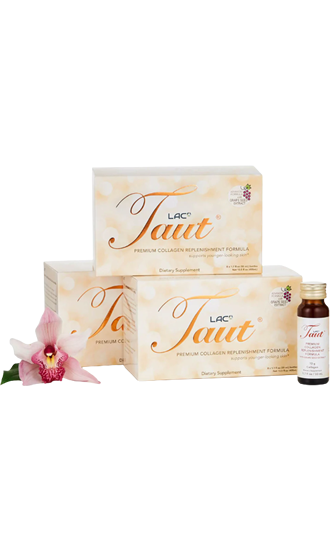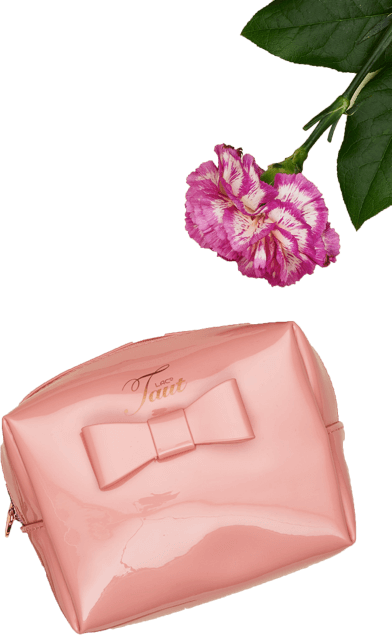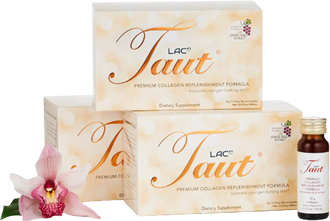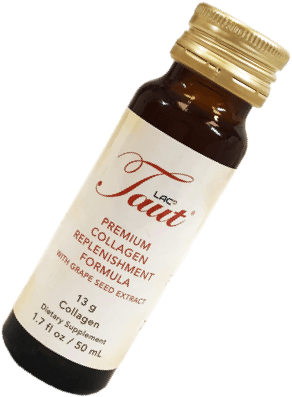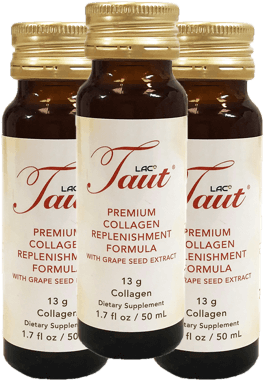Puffy Eyelids & Eyes: Why Is My Upper Eyelid & Eye Swollen?
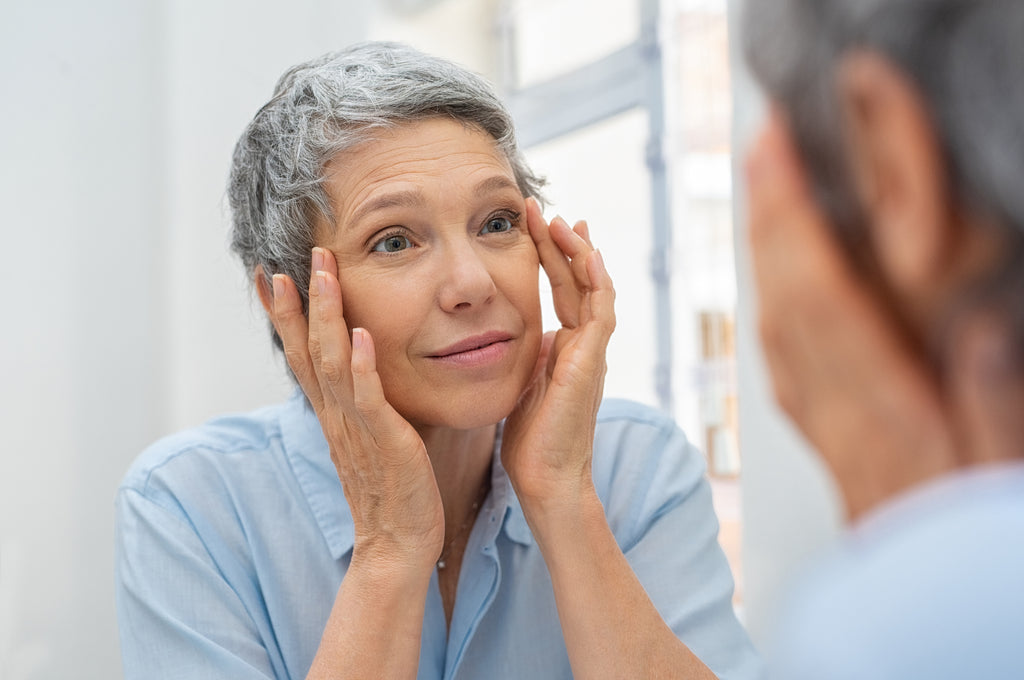 We've all been there, waking up after a bad night of sleep with puffy eyes and dark circles looking back at us from the bathroom mirror. Although it's not always a cause for concern, swollen eyelids can feel a little uncomfortable and embarrassing. But what if there's more to it than that?
We've all been there, waking up after a bad night of sleep with puffy eyes and dark circles looking back at us from the bathroom mirror. Although it's not always a cause for concern, swollen eyelids can feel a little uncomfortable and embarrassing. But what if there's more to it than that?
Unfortunately, swelling around the eyes is a concern that affects us more and more often as we get older. Simple aging, diet, and lifestyle factors can all cause swollen eyelids, but in some cases, a swollen eyelid can be symptomatic of eye allergies, infections, or hormonal imbalances.
So what can we do to treat this pesky symptom, and when do we need to see a doctor? In this article, we'll explain all of the possible swollen eyelid causes, symptoms, and solutions out there. Best of all, we'll show you how to treat swollen eyes with some serious skin care and healthcare tips that will have you feeling like yourself again in no time!
Top 8 Causes of Eyelid Swelling
There are so many things that can cause swollen eyelids, so let's take a closer look at the usual culprits:
1. Aging
That's right, it's not just crow's feet we have to worry about, swelling around the eyes will also become more common as we get older.
The tissue in our eyelids becomes lax with age due to a natural decrease in collagen and elastin: the two proteins that keep our skin strong and supple. After our twenties, our bodies slow down their production of these proteins and the result is fine lines, wrinkles, and sagging, thin skin. Around the eyes, this can cause the upper eyelid to droop and the lower eyelids to appear saggy.
Fluid retention around the eyes also becomes more common with age, particularly below the lower eyelid.
2. Allergies
Another common cause of a swollen eyelid is an allergic reaction, which you will recognize if your swelling is accompanied by itching, redness, or watery eyes.
Although we all love our furry companions, pet dander is a big culprit when it comes to eye allergies. Hayfever, an allergic reaction to pollen in the air, is another common cause of excess tear production and swollen eyes.
You might also have an allergy to certain ingredients in your eye cream or makeup, especially if you have recently started using a new product. This is known as contact dermatitis.
3. Lack of Sleep
It's true what they say about beauty sleep, we really do need our rest if we want to maintain a bright-eyed, youthful glow. When we sleep poorly or don't sleep at all, our eyes can get dry and irritated, which leads to puffiness and eyelid swelling.
Learn more about sleep & beauty.
4. Crying
Sometimes eyelid swelling has a simple explanation. Crying, particularly if prolonged or intense, can rupture blood vessels in the eyes and lead to irritation and inflammation. The tissue around the eyes can also re-absorb tears, leading to fluid retention in the skin which will manifest as swollen eyelids.
5. Stye or Chalazion
Styes and chalazions are small red bumps that appear on or around your eyelids. Both look like pimples, and they can be hard to differentiate.
A stye is an infection in a gland in your eyelids, often affecting your tear glands or glands on the inside of your eyelid. A stye causes inflammation, redness, itching, and tenderness around the eyes.
A chalazion is a type of eyelid irritation caused by a blocked oil gland in your eyelid. A chalazion looks similar to a stye, but there is no infection associated with it. This blocked gland often looks like a pimple, and it can cause redness and a swollen eyelid.
6. Conjunctivitis (Pink Eye)
Conjunctivitis, often more casually referred to as "pink eye", is an inflammation of the thin tissue that lines your eyeballs and eyelids. It's most commonly caused by a viral infection, which may be adenovirus, coronavirus, or even a herpes infection of the eyes (ocular herpes). Pink eye symptoms may also be caused by allergies or bacteria.
Symptoms of conjunctivitis or "pink eye" include eye swelling, inflamed eyelids, eyelid dryness, itching, redness, irritation, and discharge. If your puffy eyes are combined with any of these symptoms, particularly eye discharge, you may need to consult an eye doctor for treatment.
7. Bacterial Infection
In more severe cases of swollen eyelids, a bacterial infection may be present. Orbital cellulitis is a type of infection around your eye socket that can be dangerous if not treated quickly, as the infection spreads easily and quickly.
Orbital cellulitis can start with a sinus infection that is left untreated, or with insect bites that become infected. The symptoms include swollen eyelids, inflamed skin around the eyes, eye discharge, obstructed vision, double vision, fever, and headaches. 1
If your swollen eyelid symptoms persist for more than a few days, it may be a serious eye infection that you should have examined by an eye doctor immediately. If a severe infection is present, your eye doctor may prescribe antibiotic eye drops.
8. Hormonal Issues
Hormonal imbalances caused by an overactive thyroid or Graves disease can often cause eyelid swelling or bulging.
Graves disease is an endocrine disorder that affects your thyroid gland and impacts your body's ability to regulate hormones. The most common symptoms are inflammation and swelling throughout the body, causing eye swelling, blurred vision, and floaters (little spots that float and affect your vision). 2
Learn more about your feel-good hormones here.
Treating a Swollen Eyelid at Home
Even if your swollen eyelids are not serious, they can be seriously irritating and get in the way of your day-to-day! Our experts share their top tips for easing swollen eyelid symptoms and reducing your discomfort:
Rinse & Remove Irritants
It's possible that your eyes are being irritated by a product you have applied, or by an airborne irritant.
Start by removing any eye makeup or eye creams that may be causing your eyelid swelling. If you wear contact lenses, it's best to remove them until your eyes clear up. Rinse your eyes with a gentle saline solution, which you can find at your local pharmacy.
If any of these external irritants were the cause of your swollen eyelids, your symptoms should subside within a few hours of cleaning them out.
More helpful reading: Under eye wrinkle treatment
Use a Cool Compress
Those cool cucumber slices at the spa aren't just for show, they are a great way to reduce swelling around the eye area. In fact, applying anything cold to your eyes will help constrict blood vessels and decrease circulation, reducing inflammation and swelling.
You can make your own cold, wet compress at home with a cold washcloth. Simply soak a washcloth in cold water, or pop it in the refrigerator for a few minutes for extra freshness.
Our experts also love using green tea bags for puffy eyes, thanks to their caffeine and antioxidant content. Soak two green tea bags in hot water, squeeze out the excess liquid, then allow to cool completely before popping them on your eyes. Caffeine will help constrict blood vessels and reduce swelling, while antioxidants have a powerful anti-inflammatory effect.
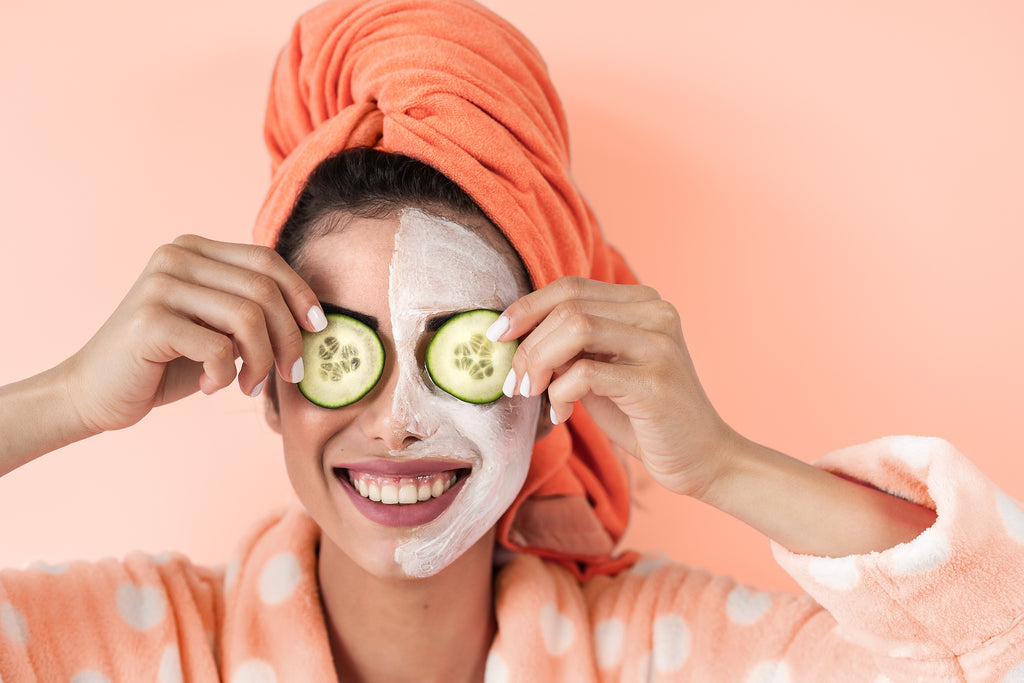
More helpful reading: How to get rid of dark circles
Keep Your Head Elevated
If you want to avoid swollen eyelids, fluid retention is your enemy number one. It can be avoided by keeping your head elevated, especially when you sleep.
Lying flat can cause swelling as fluid will pool around the eyes, leaving you with those pesky puffy eyes come morning time. So make sure you stock up on some good, supportive pillows for your bed for the perfect night's sleep!
Try Antihistamines
If allergic reactions are what's making your puffy eyelids, antihistamine eye drops can be taken to reduce swelling. You can find antihistamine eye drops at your local pharmacy, which will help reduce irritation and puffiness.
If your allergy symptoms don't clear up within a few days, see a doctor who can review your eyes and prescribe the correct course of medical treatment. In the case of severe allergic reactions, your eye doctor may need to prescribe steroid eye drops.
Eye Health Tips: Preventing Swollen Eyelids in the Long-Term
Many of the causes of swollen eyelids are preventable issues, and there are some simple additions and adjustments you can make to your diet and skincare routine to help keep eyelid swelling at bay. Here are our expert tips for keeping your eyes in top shape:
Add More Antioxidants to Your Diet
The American Optometric Association notes the importance of including antioxidants in your diet to maintain eye health. They have identified the most "eye-friendly nutrients" to be lutein, zeaxanthin, vitamin C, vitamin E, and zinc, all of which will help stave off free radicals, maintain retinal function, and reduce the risk of developing eye disease. 3
You can stock up on these wholesome nutrients by packing your diet with dark leafy green vegetables, colorful fruits and veggies, fatty fish, nuts, seeds, and unrefined oils (e.g. olive, avocado, walnut, or coconut oil).
To maximize your antioxidant intake, you could also add a supplement like Masquelier's French Pine Bark Extract to your daily routine. French Pine Bark Extract is one of nature’s most powerful antioxidants, which is significantly more powerful than vitamin E and 20 times more powerful than vitamin C as an antioxidant.
Each capsule has potent healing properties, helping to maintain eye health, strengthen the immune system, boost circulation, and improve skin quality. It's a great way to reduce the risk of aesthetic concerns like swollen eyes and sagging skin while also staving off infections and strengthening your body from within. 4
Boost Collagen for Stonger Skin
Although skin changes are inevitable over time, there are some habits we can form to maximize our skin health and combat the sagging skin and drooping eyelids that come with age. With the right preventative anti-aging treatments you can strengthen and nourish your skin to improve its texture and appearance in the long term.
A high-quality collagen supplement like Taut Liquid Collagen can help reduce the impact of aging on your skin. By boosting your collagen and elastin production from the inside out, this supplement can combat the root cause of sagging skin.
Our formula is made with a high dose of premium marine collagen peptides, along with antioxidants and active ingredients that strengthen, hydrate, and lift your skin from deep within its foundations. So you can stave off drooping eyelids, reduce puffiness, and combat crow's feet with a skin supplement that keeps you looking and feeling your best!
Stay Hydrated
We can't stress this enough, water is your best friend when it comes to maintaining healthy skin and eyes. When we are dehydrated, our bodies hold on to every ounce of water they can get, which can lead to a puffy face and eyes. The benefits of drinking water for skin are endless, helping to reduce puffiness while also clearing up imperfections, reducing dry skin, calming redness, and improving circulation.
It's also important to minimize factors that can lead to dehydration of your body and your skin. Salt is like a sponge that encourages your body to retain fluids, so reducing your salt intake will help stave off puffiness and keep skin clear.
Alcohol is also a toxin that has a diuretic effect, making your body work in overdrive to flush it out – taking precious water along with it. By reducing your alcohol consumption, you can help reduce dehydration and keep swollen eyes at bay. When you do decide to have a few drinks, try alternating your alcoholic drinks with a glass of water to minimize their dehydrating impacts.
More helpful reading from RenewSkin Inc.: Alcohol effects on face
Keep Your Eyes Safe From UV Rays
Avoiding damage from external factors is incredibly important to all of your skin, but nowhere is it more important than the thin delicate skin around your eyes. The sun's UV rays can damage eye tissue, increase the risk of cataracts, and prematurely age skin leading to sagging and drooping eyelids.
Sunglasses, hats, and a broad-spectrum SPF can help you avoid sun damage on your face and keep your eyes healthy. The blue light from your phone and computer screens is also a culprit in eye damage, so it's important to take regular breaks from your devices. 5
For optimal eye and skin health, experts also recommend that you avoid sunbeds, and always make sure your eyes are properly protected during facials that use lasers or LED light therapies.
Try Facial Massage
Massage is an excellent tool to help stimulate lymphatic drainage, reduce puffiness, and eliminate toxins. Face yoga and facial reflexology are two types of easy treatments that can stimulate your lymphatic drainage system while also reducing stress and improving your sleep health – all of which can contribute to less inflammation and puffiness.
Some facial yoga exercises around the upper or lower eyelid may help reduce instances of swollen eyelids. You can also try facial reflexology at home using a jade roller or a gua sha tool to gently massage in circles around the eye area.
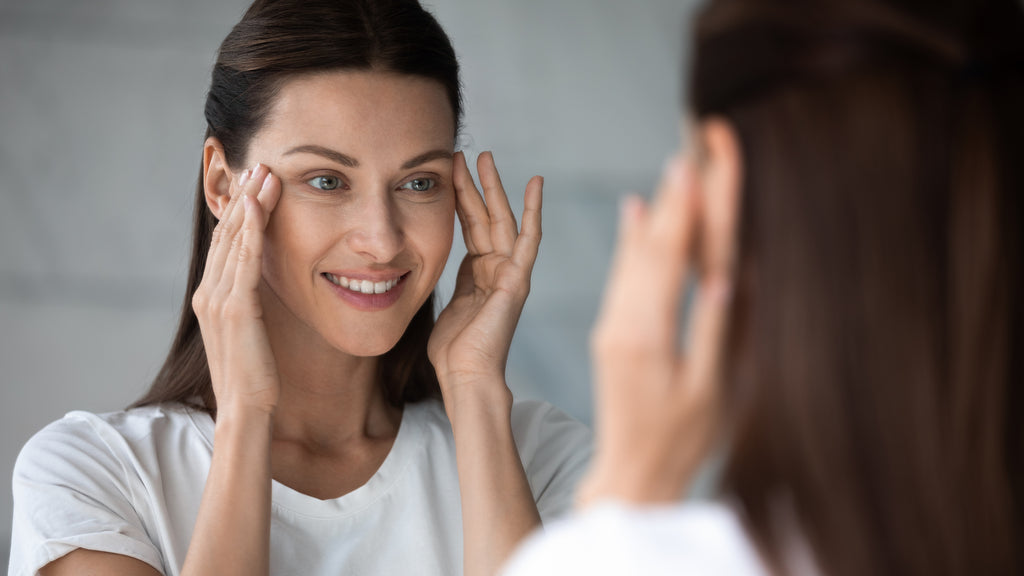
Learn more about the different types of facials here.
Combat Inflammation & Sagging Skin With Taut
You can tackle skin concerns like puffiness and sagging with Taut Anti-Oxy Foxy kit, a beauty bundle that maximises your skin's health from the inside out and the outside in. This kit contains a three week supply of:
-
Taut Liquid Collagen: our premium collagen and elastin supplement that improves skin strength and elasticity.
-
Masquelier's French Pine Bark Extract: our potent antioxidant supplement that staves off inflammation, reduces swelling, and boosts your circulation.
Together, these supplements work in tandem to restore youthful healthy skin, minimize the appearance of fine lines and wrinkles, and protect your skin and body from free radical damage, offering visible results in just three weeks!
Want to hear the best news? You can save up to 15% on your Taut products when you sign up to our skincare subscription box.
References:
-
https://www.aoa.org/healthy-eyes/caring-for-your-eyes/diet-and-nutrition?sso=y
-
https://www.aoa.org/healthy-eyes/caring-for-your-eyes/uv-protection?sso=y




